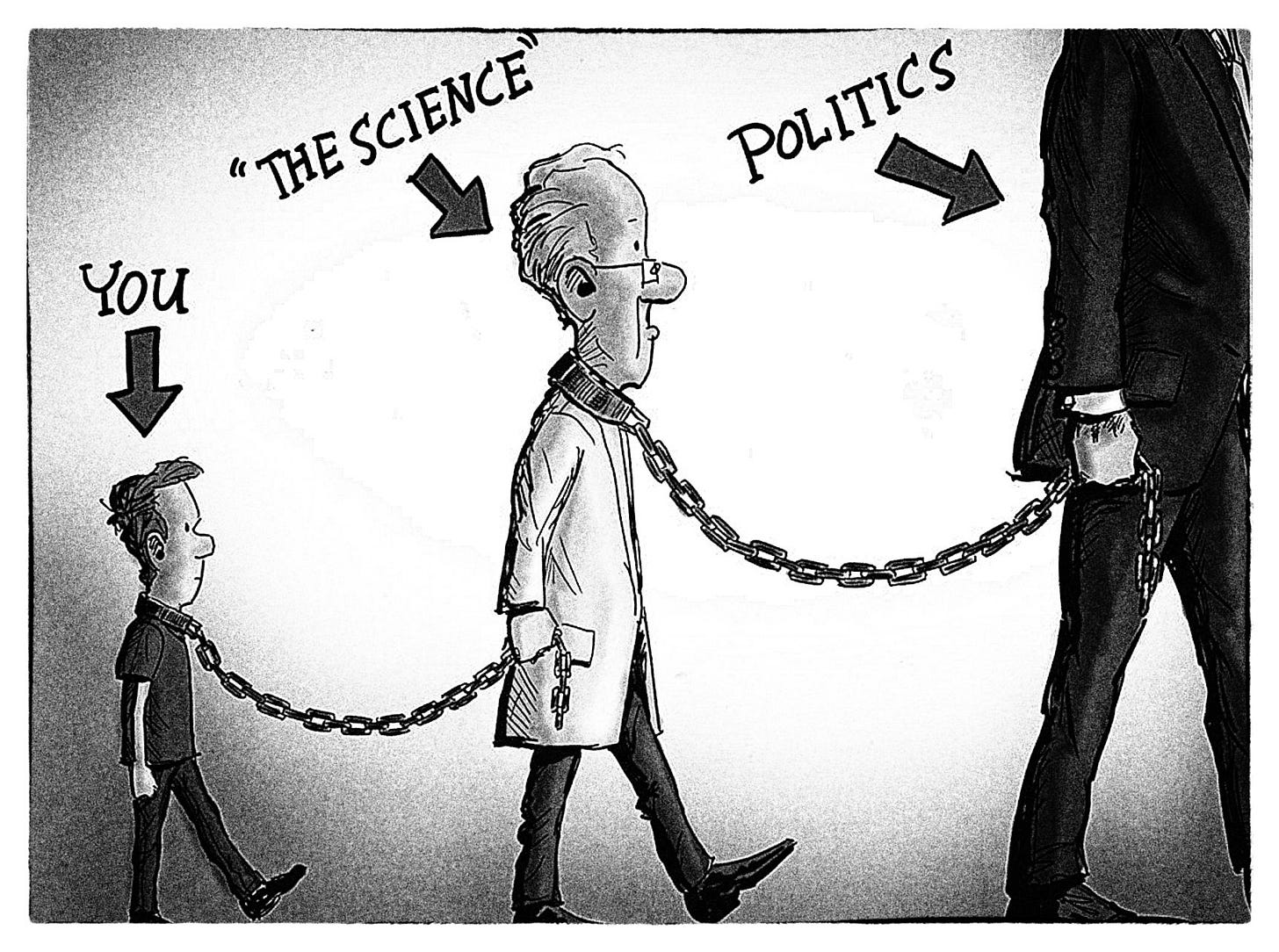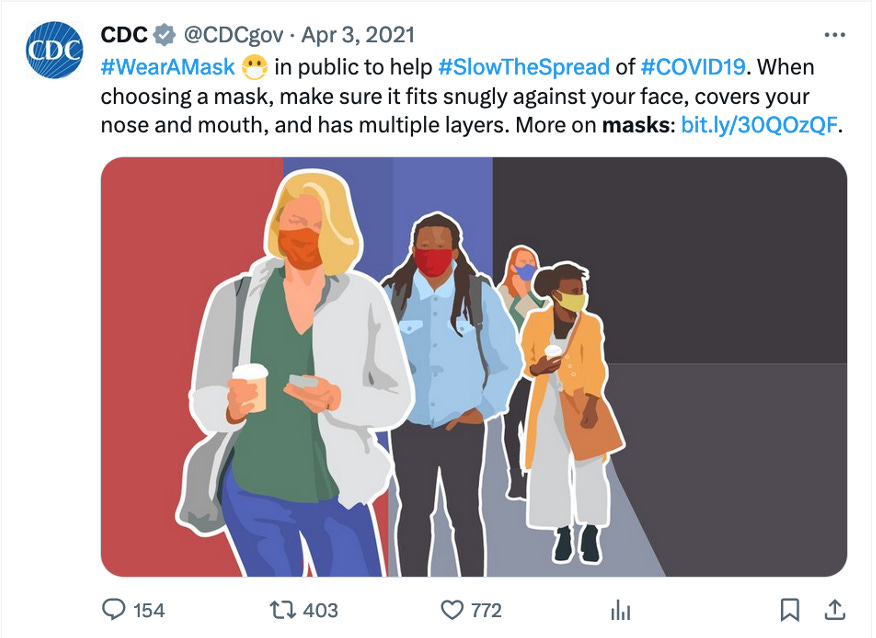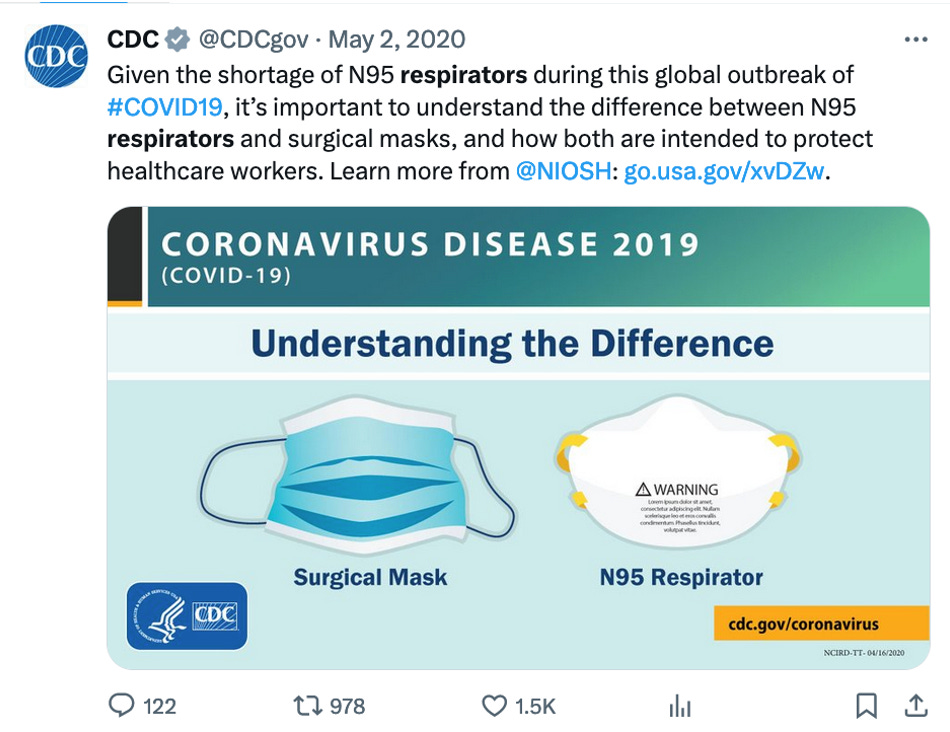CDC Warns CDC’s Own Scientists That Their Finding on Masks “Is Not Scientifically Correct”
During a congressional hearing, CDC Directory Mandy Cohen did not rule out mandating masks again for toddlers.
4 minute read
In a congressional hearing last November on restoring trust in science, CDC Director Mandy Cohen kept evading questions on whether she would bring back mask mandates for toddlers.
“We have a lot of different tools to protect our children,” Dr. Cohen said during her cagey response.
Six days later, a BMJ journal published a study that found “mask recommendations for children are not supported by scientific evidence.”
Director Cohen’s scientific bumbling continued last week as her agency began fighting with CDC’s own researchers over another contentious declaration: N95 respirators work better than surgical masks. In recent years, mask advocates have shifted goalposts and demanded N95 respirators, which they claim perform better than surgical masks at stopping the COVID virus.
Not true say CDC’s own scientists, according to CDC documents I uncovered.
During a presentation last summer, a CDC expert stated there was no difference between N95 respirators and masks in stopping viruses. These findings have been supported by CDC scientists in a study CDC published on the agency’s website last November—just a few weeks before Director Cohen testified before Congress.
To shut down this controversy, CDC wrote a blog last week warning researchers that to suggest that facemasks and respirators are the same “is not scientifically correct.”
Inconvenient mask science
Soon after the pandemic started, the CDC began promoting masks to stop the spread of COVID. And it did so despite CDC publishing a May 2020 policy study in their own journal “Emerging Infectious Diseases” that did not find a “substantial effect” for masks in stopping the transmission of respiratory viruses.
Does this sound like a problem? Not really.
The CDC then began a policy pivot. On their website and on social media, the CDC started plugging N95 respirators as superior to simple surgical masks.
However, on their webpage promoting the superiority of N95 respirators, the CDC did add one critical disclaimer: there’s not a whole lot of evidence that N95 respirators do in fact work better than masks at stopping viruses. In one example, CDC noted that a 2019 study in JAMA compared respirators to masks and found “no significant difference.”
Oops. See the JAMA conclusions, below.
Over the last year, CDC’s researchers have supported scientific findings that N95s perform the same as masks in stopping viruses. At a meeting last summer in Atlanta, a CDC health analyst presented the findings from a CDC meta-analysis on the effectiveness of surgical masks compared to N95 respirators.
Guess what CDC findings suggested: no difference. Here’s the health analyst’s testimony below:
After the analyst gave testimony last summer to the advisory committee, CDC scientists then sent the committee a systematic review which is posted on the CDC’s website.
The systematic review analyzed all available scientific evidence comparing N95 respirators to masks in stopping respiratory viruses.
In their review, CDC researchers noted that N95 respirators filter particles better than surgical masks, but the science finding they perform better at stopping viruses “has been less conclusive.” CDC researchers added that they reviewed “effectiveness” to see how N95 respirators compared to masks “under real world” conditions.
Guess what CDC scientists reported in the systematic review? No difference.
The CDC then posted a blog last week warning that CDC’s own scientists got the science wrong because respirators work better than masks, “Although masks can provide some level of filtration, the level of filtration is not comparable to NIOSH Approved respirators.”
Still confused? Watch Director Mandy Cohen dodge questions during this November hearing.
WHISTLEBLOWER RESOURCE INFORMATION
I’m putting a call out to whistleblowers inside the CDC who would like to discuss what is going on inside the agency. For those with a TS, this is even more complicated as agencies are now revoking clearances when federal employees speak out.
I have worked with whistleblowers thoughout the federal government and at corporations and universities. While running investigations for the Senate Finance Committee, I worked with whistleblowers inside the NIH to remove the head of National Institutes of Environmental Science (NIEHS). I also worked with FDA whistleblowers on agency retaliation and to remove the head of the FDA’s Office of Criminal Investigations (OCI).
During investigations of corruptions in academia, I worked with whistleblowers at Harvard, Stanford, and the University of California, among others. Investigations I ran, with the help of whistleblowers, led to the resignation of the CEO and general counsel of Medtronic, the world’s largest device manufacturer.
If you would like to discuss problems inside your agency, but fear retaliation, and would like to remain anonymous, please contact me for a confidential discussion. And here’s my advice on protecting yourself from retaliation:
Don’t complain about corruption, be a good employee;
Keep copies of everything. Take it all;
Stay anonymous and contact me on secure Signal or proton mail.









Seriously they just look like fools at this point. I guess they are banking on the majority of people not paying attention.
My research says that viruses are 1000x smaller than the mesh on any mask. Why are studies needed???
https://open.substack.com/pub/richardcskidmore/p/why-are-mask-studies-needed?r=414h6&utm_campaign=post&utm_medium=web